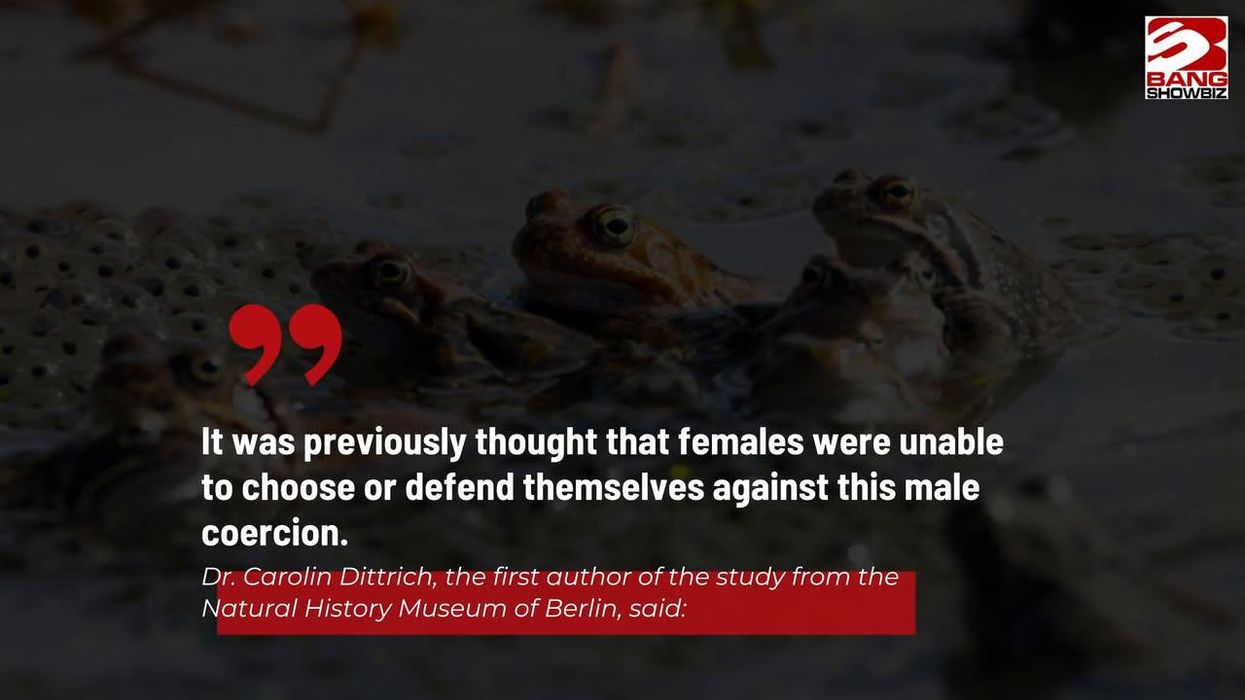Sinead Butler
Oct 12, 2023
Female frogs play dead to dodge male attention
Bang Showbiz - Bang Bizarre / VideoElephant
Some female frogs will go to the extent of faking their own deaths to avoid sex with their male counterparts, a new study has revealed.
Researchers in Berlin and Finland focused on the European common frog for their investigation owing to the often alarming nature of the species' mating process.
The short breeding season means that several males often cling to a single female – in a pile-on that can cause the female to drown.
(So, pretty understandable that they might want to avoid this.)
For the research published in the Royal Society Open Science, European common frogs were collected and divided into tanks where there were two females and one male in each.
Before this research, it was thought that the females couldn't defend themselves against the aggressive amorous act. However, a number of the wily participants displayed the three avoidance behaviours.
A rotation technique to escape mating was a popular option – carried out by 83 per cent of the females. While nearly half of them (48 per cent) mimicked how male frogs sound to trick them into letting them go.
In 33 per cent of the females, the researchers recorded a stiffening of arms and legs for two minutes, in a convincing bid to play dead.
Out of the females who got mounted by a lustful male, almost half were able to escape thanks to at least one of these avoidance behaviours.
“The smaller females also showed the full repertoire of behaviours more often than the larger females," the researchers noted, and younger females were more likely to pretend they were dead.
However, question marks remain on whether the frogs fake their death as a conscious choice or whether it is a stress response or even a means to test the male’s strength and endurance.
“I think even if we call this species a common frog and think we know it well, there are still aspects we don’t know and perhaps haven’t thought about," Dittrich explained to The Guardian.
Sign up to our free Indy100 weekly newsletter
Have your say in our news democracy. Click the upvote icon at the top of the page to help raise this article through the indy100 rankings.
Top 100
The Conversation (0)














